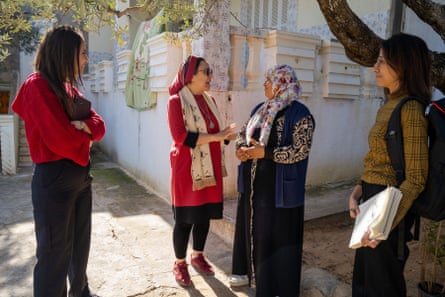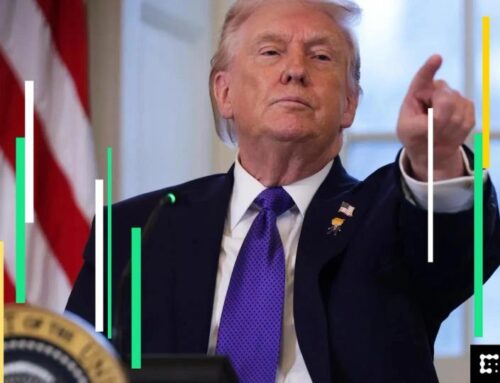Grassroots activists who took on corruption and corporate power share 2025 Goldman prize
April 21, 2025
Grassroots activists who helped jail corrupt officials and obtain personhood rights for a sacred Amazonian river are among this year’s winners of the world’s most prestigious environmental prize.
The community campaigns led by the seven 2025 Goldman prize winners underscore the courage and tenacity of local activists willing to confront the toxic mix of corporate power, regulatory failures and political corruption that is fuelling biodiversity collapse, water shortages, deadly air pollution and the climate emergency.
This year’s recipients include Semia Gharbi, a scientist and environmental educator from Tunisia, who took on an organised waste trafficking network that led to more than 40 arrests, including 26 Tunisian officials and 16 Italians with ties to the illegal trade.

Gharbi, 57, headed a public campaign demanding accountability after an Italian company was found to have shipped hundreds of containers of household garbage to Tunisia to dump in its overfilled landfill sites, rather than the recyclable plastic it had declared it was shipping.
Gharbi lobbied lawmakers, compiled dossiers for UN experts and helped organise media coverage in both countries. Eventually, 6,000 tonnes of illegally exported household waste was shipped back to Italy in February 2022, and the scandal spurred the EU to close some loopholes governing international waste shipping.
Not far away in the Canary Islands, Carlos Mallo Molina helped lead another sophisticated effort to prevent the construction of a large recreational boat and ferry terminal on the island of Tenerife that threatened to damage Spain’s most important marine reserve.

The tourism gravy train can seem impossible to derail, but in 2018 Mallo swapped his career as a civil engineer to stop the sprawling Fonsalía port, which threatened the 170,000-acre biodiverse protected area that provides vital habitat for endangered sea turtles, whales, giant squid and blue sharks.
As with Gharbi in Tunisia, education played a big role in the campaign’s success and included developing a virtual scuba dive into the threatened marine areas and a children’s book about a sea turtle searching for seagrass in the Canary Islands. After three years of pressure backed by international environmental groups, divers and residents, the government cancelled construction of the port, safeguarding the only whale heritage site in European territorial waters.
“It’s been a tough year for both people and the planet,” said Jennifer Goldman Wallis, vice-president of the Goldman Environmental Foundation. “There’s so much that worries us, stresses us, outrages us, and keeps us divided … these environmental leaders and teachers – and the global environmental community that supports them – are the antidote.”
For the past 36 years, the Goldman prize has honoured environmental defenders from each of the world’s six inhabited continental regions, recognising their commitment and achievements in the face of seemingly insurmountable hurdles. To date, 233 winners from 98 nations have been awarded the prize. Many have gone on to hold positions in governments, as heads of state, nonprofit leaders, and as Nobel prize laureates.
Three Goldman recipients have been killed, including the 2015 winner from Honduras, the Indigenous Lenca leader Berta Cáceres, whose death in 2016 was orchestrated by executives of an internationally financed dam company whose project she helped stall.
Environmental and land rights defenders often persist in drawn-out efforts to secure clean water and air for their communities and future generations – despite facing threats including online harassment, bogus criminal charges, and sometimes physical violence. More than 2,100 land and environmental defenders were killed globally between 2012 and 2023, according to an observatory run by the charity Global Witness.
Latin America remains the most dangerous place to defend the environment but a range of repressive tactics are increasingly being used to silence activists across Asia, the US, the UK and the EU.
In the US, Laurene Allen was recognised for her extraordinary leadership, which culminated in a plastics plant being closed in 2024 after two decades of leaking toxic forever chemicals into the air, soil and water supplies in the small town of Merrimack, New Hampshire. The 62-year-old social worker turned water protector developed the town’s local campaign into a statewide and national network to address Pfas contamination, helping persuade the Biden administration to establish the first federal drinking water standard for forever chemicals.

Three of this year’s Goldman recipients were involved in battles to save two rivers thousands of miles apart – in Peru and Albania – which both led to landmark victories.
Besjana Guri and Olsi Nika not only helped stop construction of a hydroelectric dam on the 167-mile Vjosa River, but their decade-long campaign led to the Albanian government declaring it a wild river national park.
Guri, 37, a social worker, and Nika, 39, a biologist and ecologist, garnered support from scientists, lawyers, EU parliamentarians and celebrities, including Leonardo DiCaprio, for the new national park – the first in Europe to protect a wild river. This historic designation protects the Vjosa and its three tributaries, which are among the last remaining free-flowing undammed rivers in Europe.
In Peru, Mari Luz Canaquiri Murayari, 56, led the Indigenous Kukama women’s association to a landmark court victory that granted the 1,000-mile Marañón River legal personhood, with the right to be free-flowing and free of contamination.

The Marañón River and its tributaries are the life veins of Peru’s tropical rainforests and support 75% of its tropical wetlands – but also flow through lands containing some of the South American country’s biggest oil and gas fields. The court ordered the Peruvian government to stop violating the rivers’ rights, and take immediate action to prevent future oil spills.
The Kukama people, who believe their ancestors reside on the riverbed, were recognised by the court as stewards of the great Marañón.
This year’s oldest winner was Batmunkh Luvsandash from Mongolia, an 81-year-old former electrical engineer whose anti-mining activism has led to 200,000 acres of the East Gobi desert being protected from the world’s insatiable appetite for metal minerals.
Search
RECENT PRESS RELEASES
Related Post




